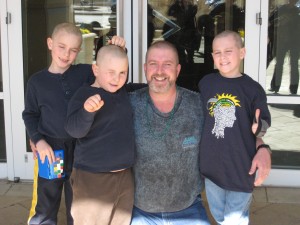Whenever I have heard of a situation where a child has been sending mean or lewd messages to other students the parents are always the last to know. The last thing we want to have happen to us as parents is to learn that our child has either been sending or receiving messages with photos of themselves or others that would put them in a compromising position. So what can we do?
As a parent we must be careful not to react in a manner that would make our child less likely to talk to us about any of these subjects, so how do we make sure that they have the real information on the impact of “sexting” with their friends?
Talking about the subject ahead of time is always the best route. At least then we have a starting point so that in the future our child knows where we stand on the subject and they have accurate information. One thing you may consider is when giving your child a phone with texting capabilities that we set some ground rules, not just on the amount of usage (dealing with cost) but also on what is appropriate and why. Start by showing them this video:
We may ask them some questions as a starting point and then let them understand where we stand on the subject. Continue reading “How to talk to your child about “Sexting”?”




